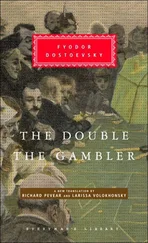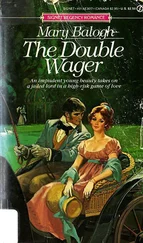In some ways, Laurel thought, the pieces were fitting together as precisely as a jigsaw puzzle. She wondered what this perfectly nice woman would say if she were to inform her, Bobbie’s mother was Daisy Fay Buchanan. And she wasn’t playing bridge that first summer. She was disappearing those afternoons to be with Jay Gatsby. Bridge was just her ruse. Her cover.
No doubt the schoolteacher would, like everyone else, smile on the outside while believing on the inside that she was either mistaken or nuts. Nancy would probably conclude that she was more paranoid than some of her clients if she knew that the man’s photographs and contact sheets and negatives were locked in a case right now in the back of her car-if the woman knew that she was going to hand them off to a waitress at a Burlington diner because there were people who wanted those pictures as much as she did and so she had to hide them some place safe.
“You said you wanted to meet the minister,” Nancy was saying, gently leading Laurel over to him. “I don’t know what he can tell you about Bobbie, because Bobbie wasn’t with us very long. But he can probably tell you something about Reese.”
Laurel thought the minister looked to be about David’s age. He had a high forehead beneath a brush cut of reddish-brown hair. His eyes were a little sunken, but he had a strong chin and a wide, infectious smile. His name, she knew from the program, was Randall Stone, but everyone seemed to be calling him Randy. After Nancy had introduced them, she explained to him why the young social worker had driven to Bartlett that morning. His face grew solemn when she told him that Bobbie had passed away.
“And you met him through your work with BEDS,” he said to Laurel, not a question but a statement. He was, clearly, enduring precisely the sort of guilt that Jordie had experienced just now when she had learned what had happened to Reese’s friend after the old editor had died.
“Yes. But he didn’t stay long in the shelter before we found him an apartment. His place wasn’t palatial, but it was a bed and it was warm and it was his own.”
The minister ballooned his checks in exasperation, then exhaled. “He told me he was going to move in with his sister.”
“Did he say where she lived?”
“ Long Island. East Hampton, maybe. The last time I saw him was at Reese’s funeral. I really should have gotten a better handle on his plans. We all knew he was more than a little off.”
“Off?”
“I’m not sure where he’d been living for most of the years before he showed up at Reese’s doorstep like a stray cat, but his address immediately before moving in with Reese was the Vermont State Hospital.”
Laurel had chosen not to tell Jordie the specifics of Bobbie’s mental illness, but she saw no reason not to share these details with the pastor. “Bobbie was a schizophrenic,” she said. “When he was medicated, he could more or less function. Not completely, of course. And like most schizophrenics, he didn’t believe he was ill-and so sometimes he would stop taking his medicine when he wasn’t supervised.”
“Do you know if he ever married?” he asked. “I couldn’t get a simple yes or no answer when I asked him that one day when he was here playing Scrabble.”
“I don’t know,” she said.
“I don’t think he did,” Nancy answered. “He and Reese had some inside joke about a ballerina he was seeing in the 1960s, but I guess Bobbie wasn’t exactly the commitment type.”
“But he might have had a son,” said Laurel. “Jordie Baker believes that he did.”
“That’s a news flash for me. I had no idea.”
“So he just appeared in Bartlett one day? Reese had no idea he was coming?”
“As I understand it, Bobbie came to Vermont looking for Reese a little over two years ago, but something happened and he wound up at the state hospital. Reese wasn’t expecting him. While he was there, someone on the hospital staff located Reese, and Reese was extraordinarily magnanimous. He invited Bobbie to move in with him when the hospital team said he was ready. I gather Bobbie had lived with him once before-years ago, when Reese was married. Reese grilled him a couple of times about where he’d been since then, but the answers were inconsistent. Sometimes Bobbie said he had been in Louisville, sometimes he said he had been in the Midwest. At least once he said he had been near his sister on Long Island. I’m sure he had other answers, too. But in all of his stories, he never once mentioned a son.”
“Did he say why he was always on the move?”
“I asked him that when we met. He made a joke about having to stay one step ahead of the hounds.”
“It probably wasn’t a joke. He might really have thought he was being pursued,” Laurel said. And, she thought, it was possible that someone really was trailing him for those photos.
“Is that a symptom of schizophrenia?” Nancy asked.
“Paranoia? Often.”
Randy jumped in. “Whoa, I don’t know if Bobbie actually meant anything by that remark. It might have been just a joke. I mean, another time when we were chatting he said something like ‘Guests are like fish. You keep them around too long and they start to smell.’”
“As far as I know, Reese was a photo editor and Bobbie was a photographer,” Laurel said. “Bobbie used to work for Reese. Is that how you believe they knew each other? Or is there more to it than that?”
“Reese was a successful photojournalist, too,” the pastor said. “He worked for newspapers, magazines, even Life in its heyday. This was the Life that my parents-and your grandparents-pored over weekly.”
“And what about Bobbie?” she asked.
“Well, like you said: He took some pictures for Reese. For Life. The problem was that he wasn’t very dependable. Both Reese and Bobbie made jokes about that, too. The man was his own worst enemy in terms of a career.”
“Because of the schizophrenia,” she said.
“And the drinking. He was an alcoholic, and he was irresponsible. He’d get into trouble.”
Nancy glanced quickly at Laurel. When their eyes met, the schoolteacher looked down at the tile floor.
Laurel turned back to the pastor and asked, “Did you ever see any of Bobbie’s photographs?”
“I saw the ones he took when he was living here. When he was staying with Reese, Reese would loan him his camera and chauffeur him around. And I saw a bunch Bobbie said he took in Vermont years before that. Fall foliage stuff. A batch of a dirt road up in Underhill-one that might have had a bicyclist in it, I think.”
“Was he living with Reese when he took those?”
“Oh, no. He only reappeared in Reese’s life the year before last,” the minister said, as two other parishioners, an elderly couple, descended on him. Laurel had the distinct sense that she had monopolized the pastor long enough and so she allowed him to be pulled into their conversation.
“I hope you’ll come back,” Randy said to her.
“I will,” she said, though she honestly wasn’t sure whether she meant Bartlett or the church.
“I just thought of one more thing.” This was Nancy, speaking softly although the nearby parishioners were so engrossed in their conversation that they couldn’t possibly have heard what she’d said. Laurel understood this was an invitation of some sort. It was why Nancy had looked at her so seriously a moment earlier.
“Yes?”
“Maybe it was the word trouble that made me think of it. That same day we were playing Scrabble-right over there, as a matter of fact-Bobbie said something about jail. It came up right after he’d turned the word fine into confine. You know, by adding c-o-n? Something about the connection and the moment, I don’t know, it made me sure that he was talking about a prison.”
Читать дальше












